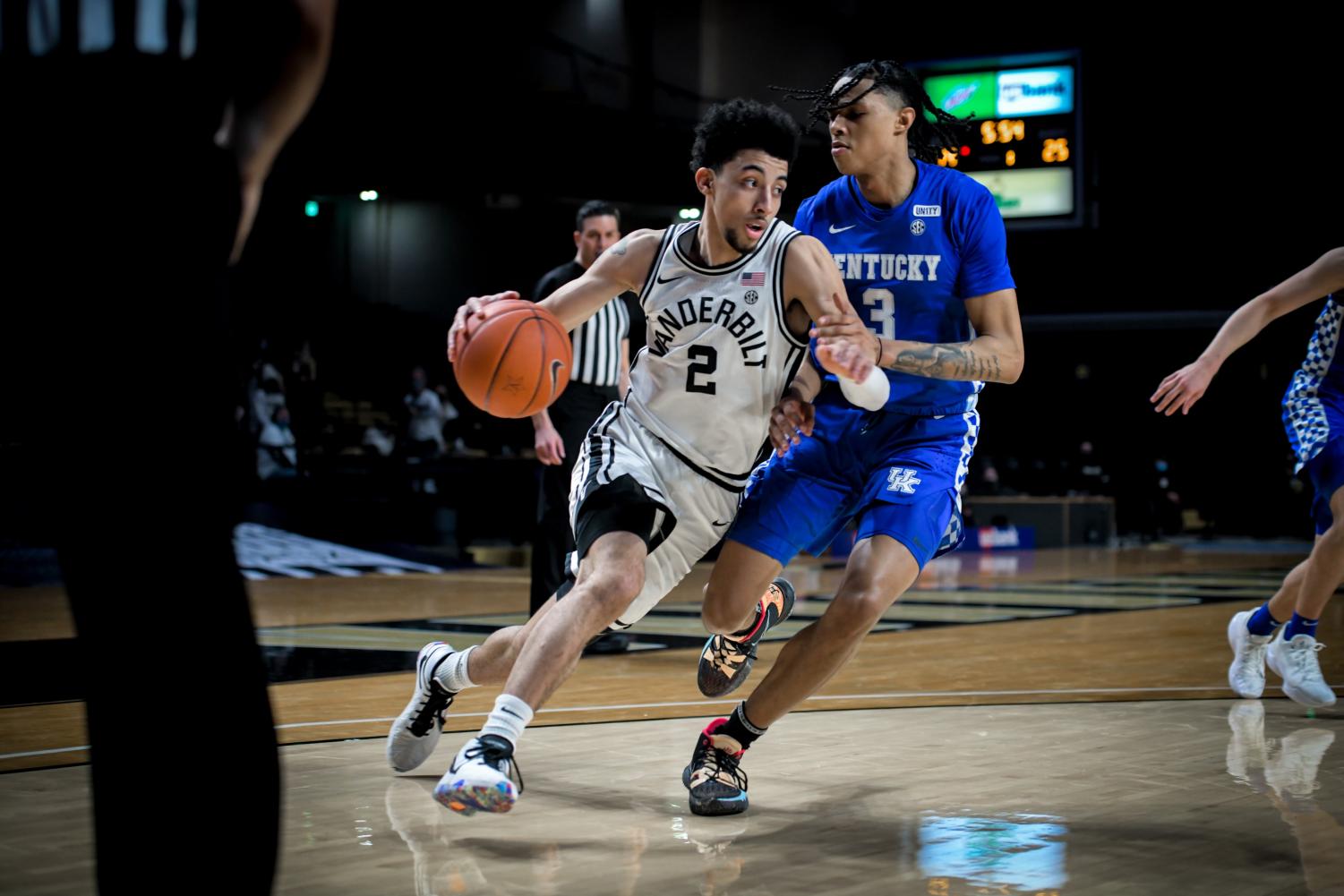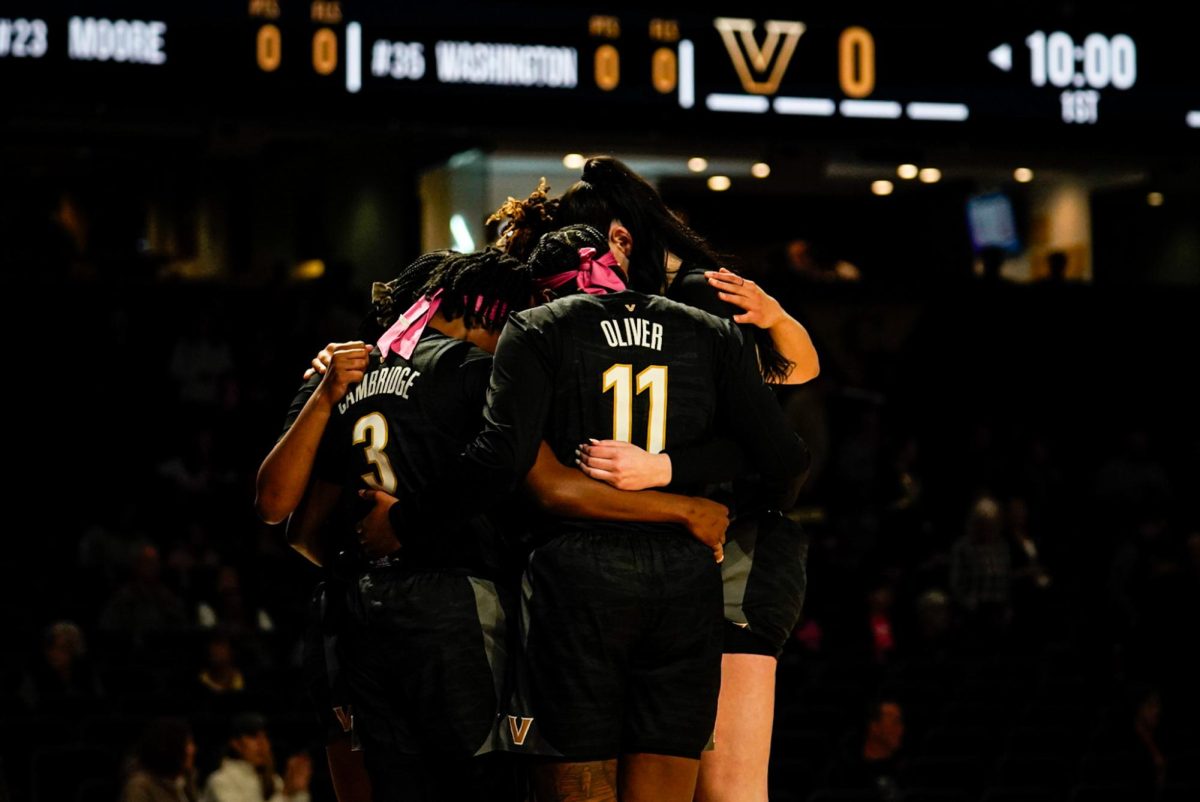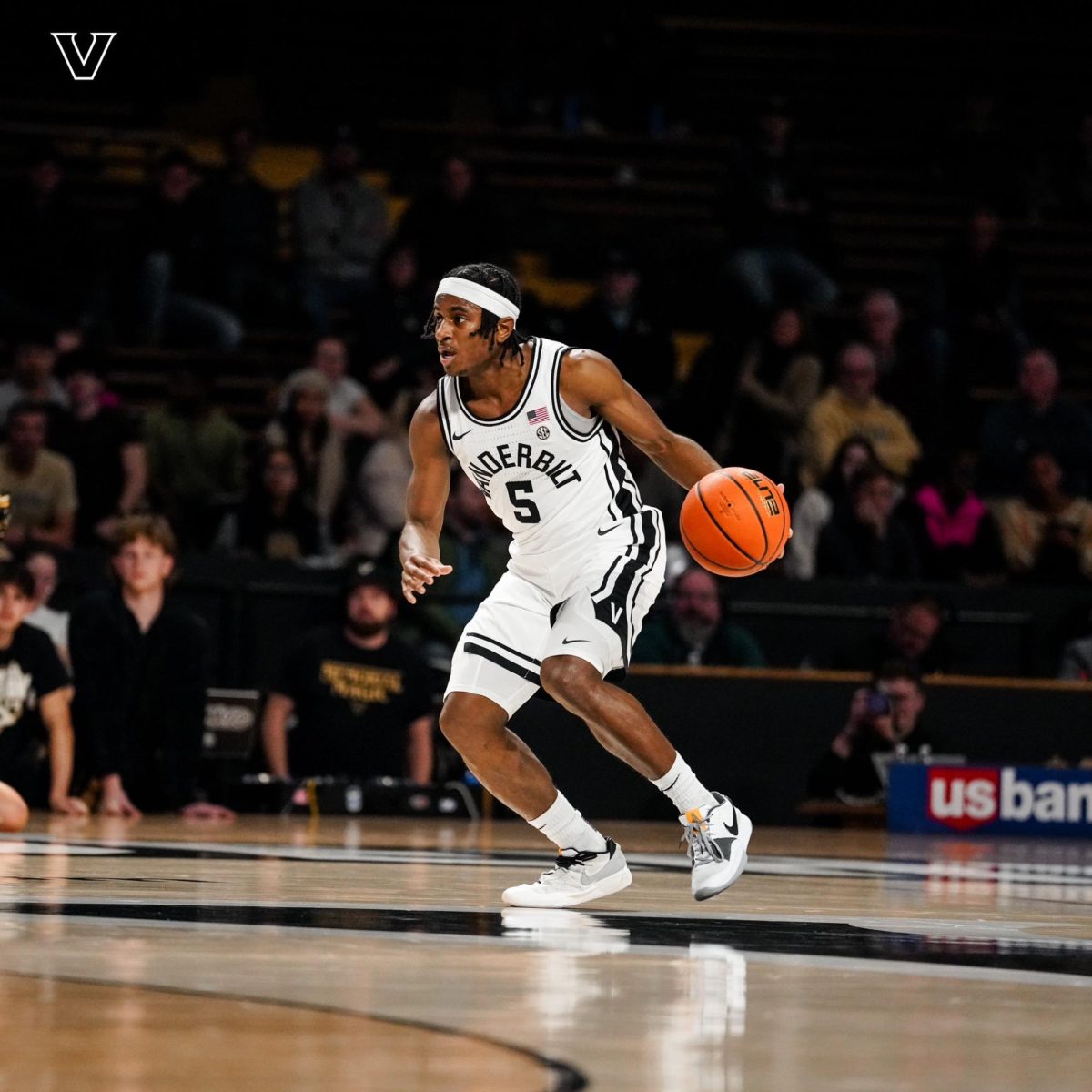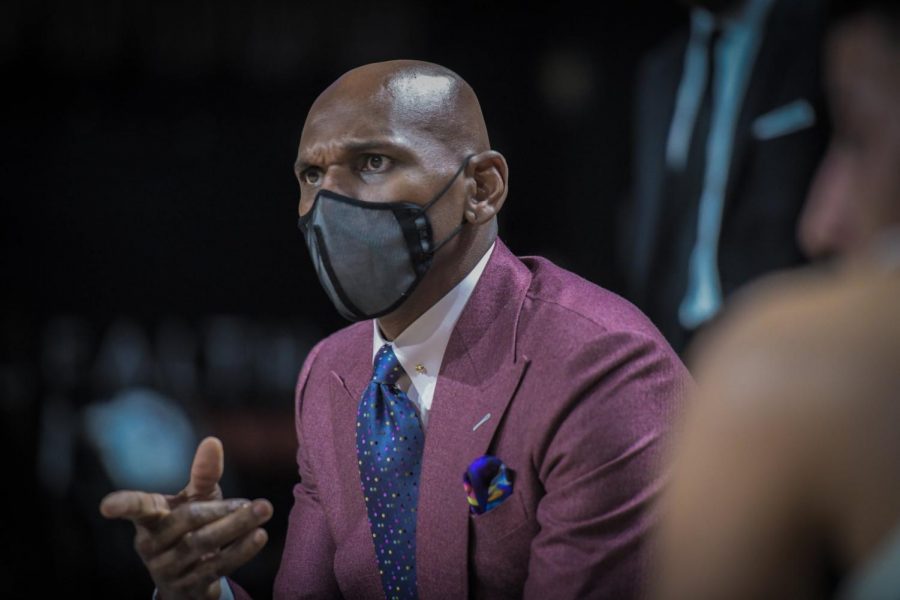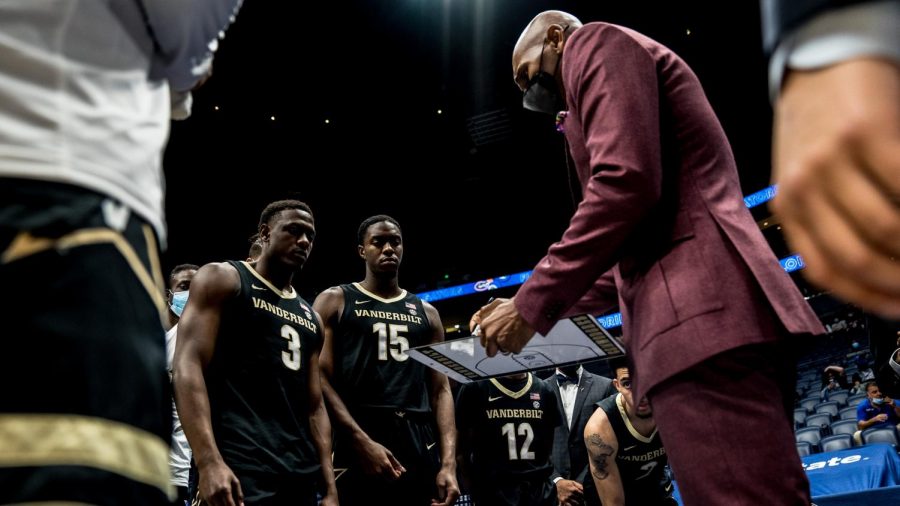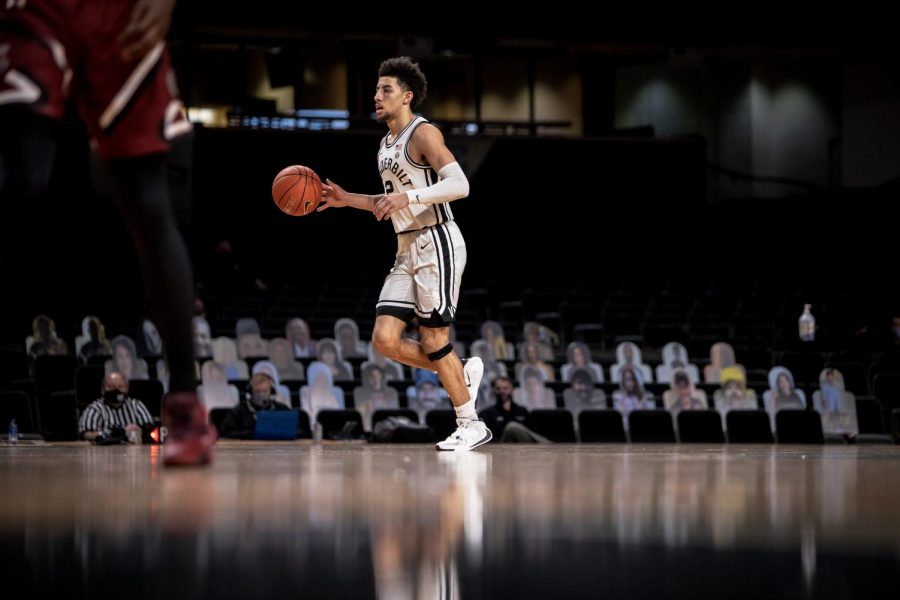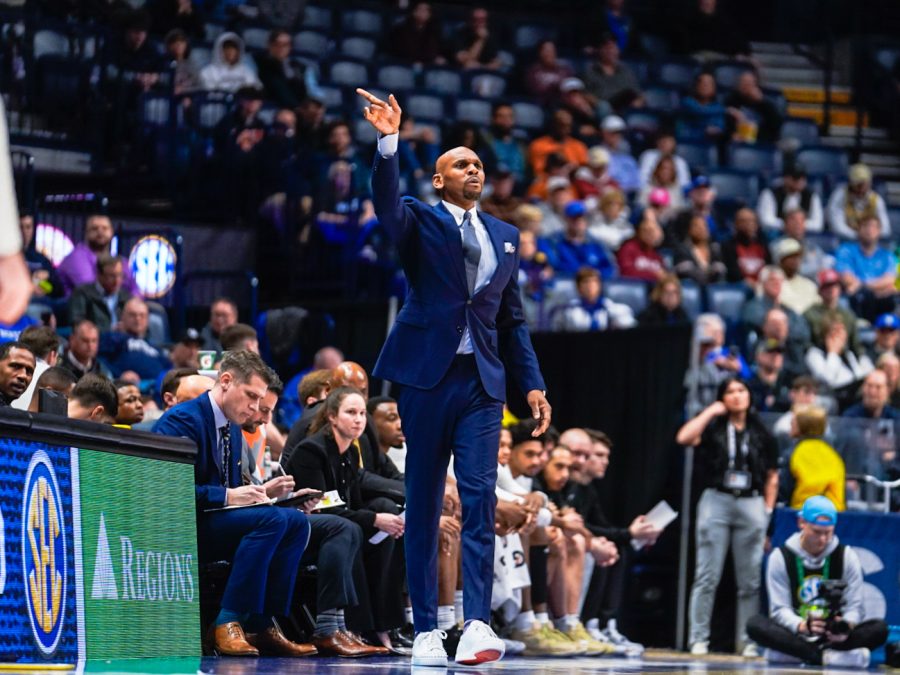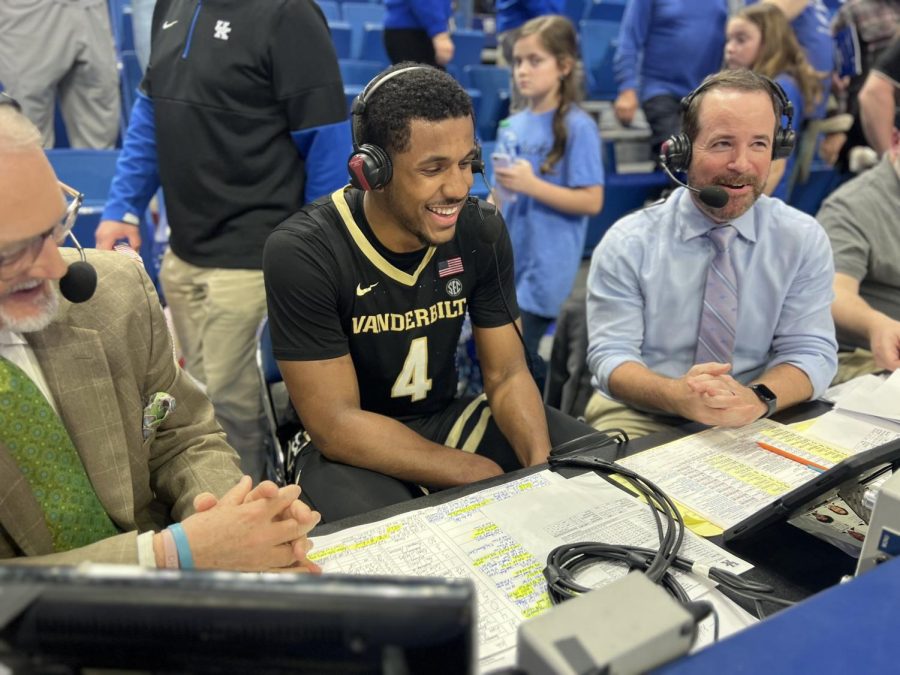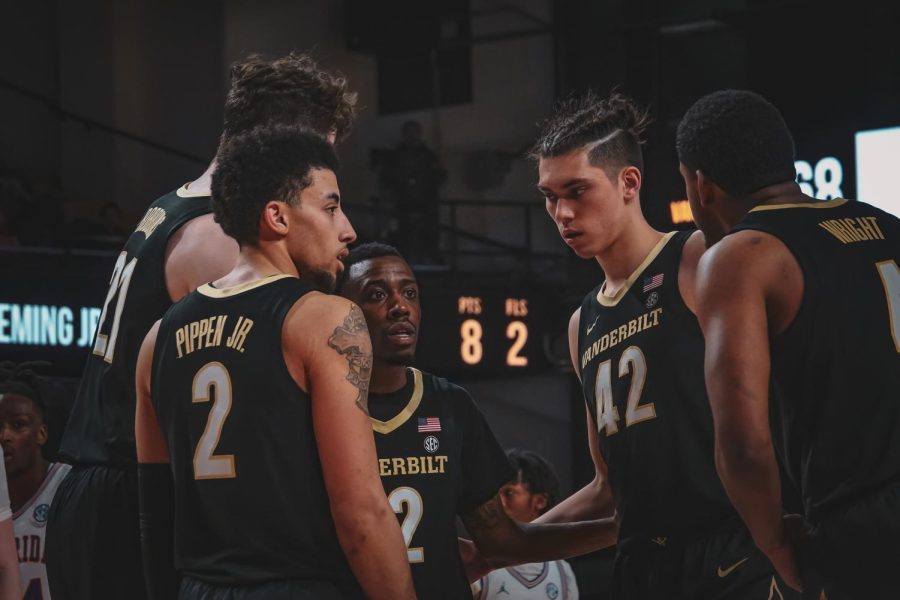Stop me if you have heard this before.
Vanderbilt trails at halftime but is close enough to make the game interesting. The Commodores make the right adjustments at the break and come out on a tear in the first five minutes of the second half. All of a sudden, Vanderbilt is in the game with five minutes remaining.
Then, the turnovers start. The shots stop falling. And the fouls pile up.
Seven of the Commodores’ ten Southeastern Conference (SEC) losses have been by seven or fewer points, and that was the story of this week for Jerry Stackhouse’s team. Following a dominant performance in Starkville, the Commodores dropped consecutive games by the same narrow score: 82-78.
First, it was the Kentucky Wildcats at Memorial Gymnasium. Despite outscoring the Wildcats 48-40 in the second half, a 12-point halftime deficit proved too much for the Commodores to overcome, leading to Vanderbilt’s 11th-straight loss to Big Blue.
Then, the Commodores trekked through the Nashville snow to Tuscaloosa for a Saturday matinee with the SEC’s best team, the eighth-ranked Alabama Crimson Tide. For most of the afternoon, Vanderbilt remained in striking distance. But fueled by a stagnant stretch of Commodore offense and a technical foul on Stackhouse, Alabama exploded for a 23-7 run in the second half. The run gave Alabama a 12-point lead midway through the second half, a hole simply too deep for the Commodores to climb out.
Losing seven of ten games by seven points or fewer is frustrating, there is no way around that. But progress takes patience and building a sustainable, winning program takes time. As hard as it is to admit, Vanderbilt basketball is no longer the winning program it once was. It’s not the same.
Rebuilding from a 0-18 SEC campaign isn’t easy, and there will be plenty more close losses before this program truly returns to its former glory.
“We had an opportunity to win this game,” Stackhouse said after the loss to Alabama. “We know that we are very capable. We just need to keep building and taking these experiences and learning from them.”
Driven by Disu
At first glance, it seems like Scotty Pippen Jr. is the Batman of this year’s Commodore team. But Dylan Disu is certainly more than a Robin.
Disu has been the offensive engine behind Vanderbilt’s recent play, recording back-to-back 15-plus point, 15-plus rebound performances and showing off an offensive package that has tortured opponents.
Last season, three-point shots accounted for 65% of Disu’s offensive production. This year, thanks to plenty of offseason work on his body and finishing ability, that number is down to just 28%.
Disu totaled 29 points and 16 rebounds against Kentucky and 17 points and 15 rebounds against Alabama. With Clevon Brown inactive against the Crimson Tide and limited against the Wildcats due to a tweaked knee, Disu was charged with manning the interior on both ends of the floor. Although more of a stretch big last season, he showed this week that he can bang with the best of the SEC’s big men.
“I thought we had an advantage on the inside,” Stackhouse said after the Alabama game. “I thought Dylan did a good job. We wanted to post him; we wanted to play through him. He did a good job of going in there and scoring. And when they converged on him, he made good passes.”
Two main things have enabled Vanderbilt to play through Disu this season. First, his composure and fluidity off the dribble has been a revelation and he has been determined to use his frame to his advantage. He’s been physical in the post to finish over larger defenders and used his length to take opponents from the three point line to the rim in just one dribble.
Second, his tenacity on the offensive glass has been largely unmatched in the SEC. He is averaging four offensive rebounds in his last seven games, but what has been even more impressive is his ability to convert those boards into second-chance points.
Disu is an All-SEC performer. As the league’s leading rebounder and tenth-leading scorer, he has been nothing short of outstanding. And what doesn’t always show up in the boxscore is the consistent energy and heart he brings to this team. When you are watching Vanderbilt’s matchup with Tennessee this Tuesday, take note of who is the first player on the court diving for a loose ball. I bet it’ll be Disu.
A supporting cast?
“We just need to get a little more support,” Stackhouse said.
Sigh. Following the loss to Alabama, Stackhouse once again referenced the lack of support that his two sophomore studs have had this year. Besides Disu and Pippen Jr., the nine other Commodores who have seen regular game action have combined to score in double figures just 12 times in 18 games.
On Saturday, Alabama had 57 bench points to Vanderbilt’s 10. Granted, it was Alabama senior night, so Jaden Shackelford—a usual starter—did come off the bench to score 27 points. But even the 30 bench points tallied by Alabama’s usual bench players dwarfed Vanderbilt’s reserve contributions.
“When you look at their [Alabama’s] contributors, they had three guys in double figures, two or three guys with eight points,” Stackhouse explained. “We had Scotty, Dylan and Max was good for us again today and then we had no one else with more than six [points].”
There has been a fine line between winning and losing for Vanderbilt the past two seasons, and the importance of role player contributions cannot be understated. Case in point: Max Evans has scored 200-plus points four times in his career. All four of those outings have resulted in SEC victories for Vanderbilt.
Clevon Brown has also shown his importance of late. Following his five blocks against Auburn, he racked up 15 points and five steals in Vanderbilt’s win over Mississippi State. Then, he catalyzed a 16-4 Vanderbilt run to begin the second half against Kentucky with three ferocious slam dunks. Unfortunately, he tweaked his right knee in that game allowing him to play just 18 minutes before sitting out Vanderbilt’s trip to Tuscaloosa.
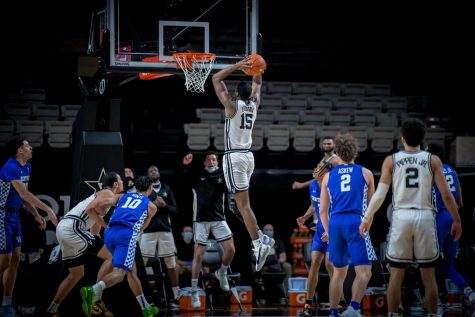
Although Evans and Brown have elevated their play of late, Stackhouse needs to put others—specifically those who are primed for bigger roles next year—in positions to put the ball in the hoop.
And now, I will make my case for Issac McBride to be the first man off the bench for this team moving forward.
McBride, a former Kansas Jayhawk commit, battled an ankle injury earlier in the season and has been given sporadic minnutes over the past three games. After playing 13 minutes per contest for two weeks beginning in late January, McBride played just 11 minutes combined in Vanderbilt’s matchups with Mississippi State and Kentucky.
Despite his inconsistent playing time, he has made the most of his opportunities. He is currently fifth on the Commodores in points per 40 minutes at 13.3 and has drained eight of his last 21 three point attempts, good for 38% from beyond the arc.
McBride gives the Commodores a guard skillset they lack elsewhere. Besides Pippen Jr., Vanderbilt does not have a guard who can pull-up off the bounce and beat a man off the dribble using pure speed. McBride provides both of those elements. He is also a guy who can be run off screens in Stackhouse’s offense.
He figures to be one of the Commodores lead guards next season, and it’s time for him to be given the keys to Stackhouse’s second unit.
Winning Time
“There is never really one thing,” Stackhouse said Saturday. “We could look at free throws. We could look at being a little bit closer and putting a little bit more pressure on [Jahvon] Quinerly on that big three that he made. We could look at some of the post-ups that [Herb] Jones had.”
The head coach is correct. I wish I could point to one thing and say, “if they fixed that, they would have five more wins.” But I can’t. There is no one pitfall continually plaguing this squad in winning time and there is no one change that can be made to flip the entire script.
As Stackhouse mentioned, his team is down to just 73% from the free throw line, and they surrendered 21 total offensive rebounds in their losses to Kentucky and Alabama. But the bottom line is this team simply does not know how to win yet.
Over and over again, it feels like the Commodores are on the run late. Over and over again, it feels like if they had just five more minutes, they may actually win the game. But when you are battling the clock and a worthy opponent like Alabama, you aren’t going to have much success.
Being within striking distance is one thing. Controlling the flow of the game is another. And few times in the Stackhouse era has Vanderbilt truly dictated the course of a game. One of those times was certainly last Saturday’s win over Mississippi State. And there was one key difference between that game and many of the Commodores close losses this season: they held a halftime lead.
Led by hot shooting, Vanderbilt mounted a 30-15 run in the final 15 minutes of the opening frame and entered the locker room with a 15-point lead. Instead of having to claw their way back in the second half, the Commodores were able to exit the locker room with one focus: defense.
On the contrary, Vanderbilt entered both of its next two second halves with deficits of twelve and four points, respectively. The Commodores were able to quickly mount second half runs, even tying or taking the lead in both contests. But to climb out of a halftime hole and hold off an SEC opponent is challenging. And this team doesn’t quite know how to do it yet.
Few things breed winning and without superior talent, experience is the ticket. 71% of Vanderbilt’s minutes this season have been played by sophomores or freshmen. Just three players on the entire roster—Brown, Evans and Isaiah Rice, who is a walk-on—have been at Vanderbilt for more than two years. And that includes the head coach.
Commodore fans have been asked to be patient for far too long, thus frustration is fair. But let’s not be unrealistic. This team needs more time. And this team—coaches included—needs to lose even more close games before it truly brings Vanderbilt basketball back to its winning ways.


